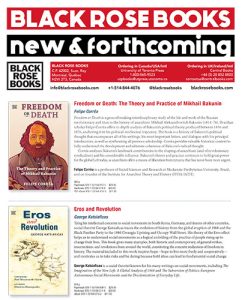upstreet – 2010
Number 6
2010
Annual
Anne Wolfe
Upstreet is an award-winning publication that claims to have “the best new fiction, poetry and creative non-fiction available” to “offer a voice to prose writers and poets who might not find publication in more mainstream journals.” However “mainstream” might be defined, whether these pieces are off-beat, they are definitely striking and high-quality. Choosing which poems and short-stories to comment on is almost a random process; there is good variety, and the quality is consistent. The size of the journal is typical of any paperback; about two hundred pages, sporting a shiny black cover with the title printed in bold orange on the front.
Upstreet is an award-winning publication that claims to have “the best new fiction, poetry and creative non-fiction available” to “offer a voice to prose writers and poets who might not find publication in more mainstream journals.” However “mainstream” might be defined, whether these pieces are off-beat, they are definitely striking and high-quality. Choosing which poems and short-stories to comment on is almost a random process; there is good variety, and the quality is consistent. The size of the journal is typical of any paperback; about two hundred pages, sporting a shiny black cover with the title printed in bold orange on the front.
Up front is a refreshingly unpretentious, unscripted interview of the writer Sue William Silverman. She authored the memoirs, Because I Remember Terror, Father, I Remember You, and Love Sick: One Woman’s Journey through Sexual Addiction. The questions are open, thoughtful, not leading; Silverman’s answers are fluent, detailed, spontaneous, and quite revealing. Silverman discusses the essential differences between writing fiction and memoir, the process of having Love Sick made into a movie, the freedom poetry gave her, and the positive and not-so positive aspects of becoming a publicly known person. There is no embarrassing gushiness on the part of the interviewer. As it progresses, the question and answer becomes a conversation while still retaining the Q&A format, almost giving one a sense of hearing it while reading it.
One poem that packed a punch was “Dotty’s Plot” by Denise Duhamel, beginning: “after her ex-husband died / the hussy he left her for…assumed Dotty / didn’t want to be buried / next to a cheat.” There is a good smirk somewhere in Duhamel’s potent language, venomous as any pit viper that strikes fast.
Annie Breeding, in the short story, “The Downfall of the Reynal de St. Michels,” delves into the family, familiarity, mooching and selfishness, and desperation. This might be a story for our times: family members falling on hard economic circumstances, others lending a helping hand, bringing out new aspects of the saying “charity begins at home.” “Depositions,” by David Jauss, is a story told from six points of view, in the form of statements. These statements, memories having to do with a murder, form a stark montage.
Also inside is a brief memoir, brilliantly threaded as though through the eye of a needle around one metaphor, “That Furrowed Brow,” by Andrew D. Cohen. It vividly roams through the illnesses and peculiarities of the author’s grandmother, aunt, and mother; their obsessions, his obsession, and what he passes on to his child. His spell is magical. Upstreet has a blog for fans to discuss their reactions to the writing within it, a unique feature that might be copied someday soon. The fine work inside is worth looking at whether one chats online afterward or just takes it in.
[www.upstreet-mag.org]




